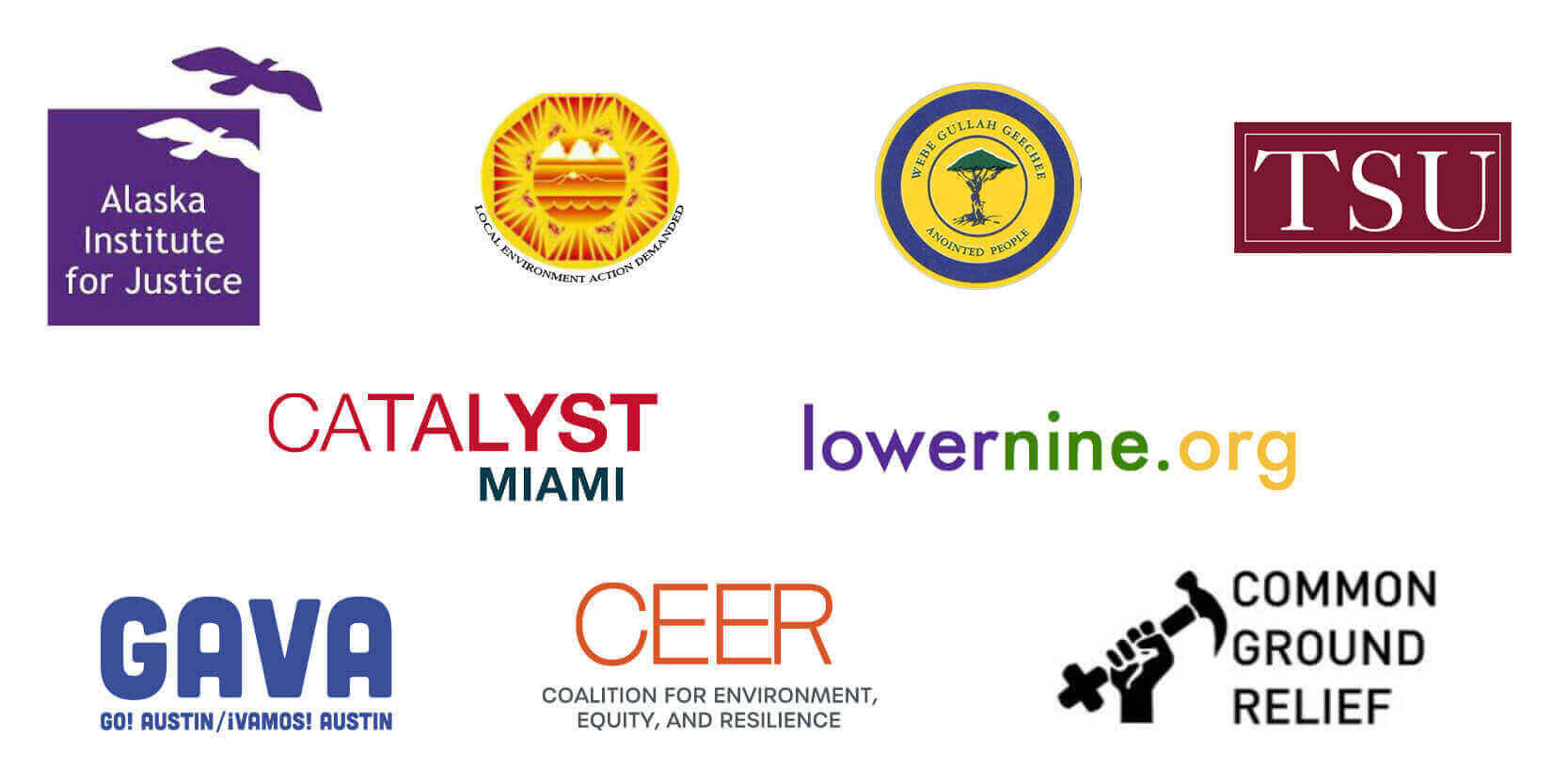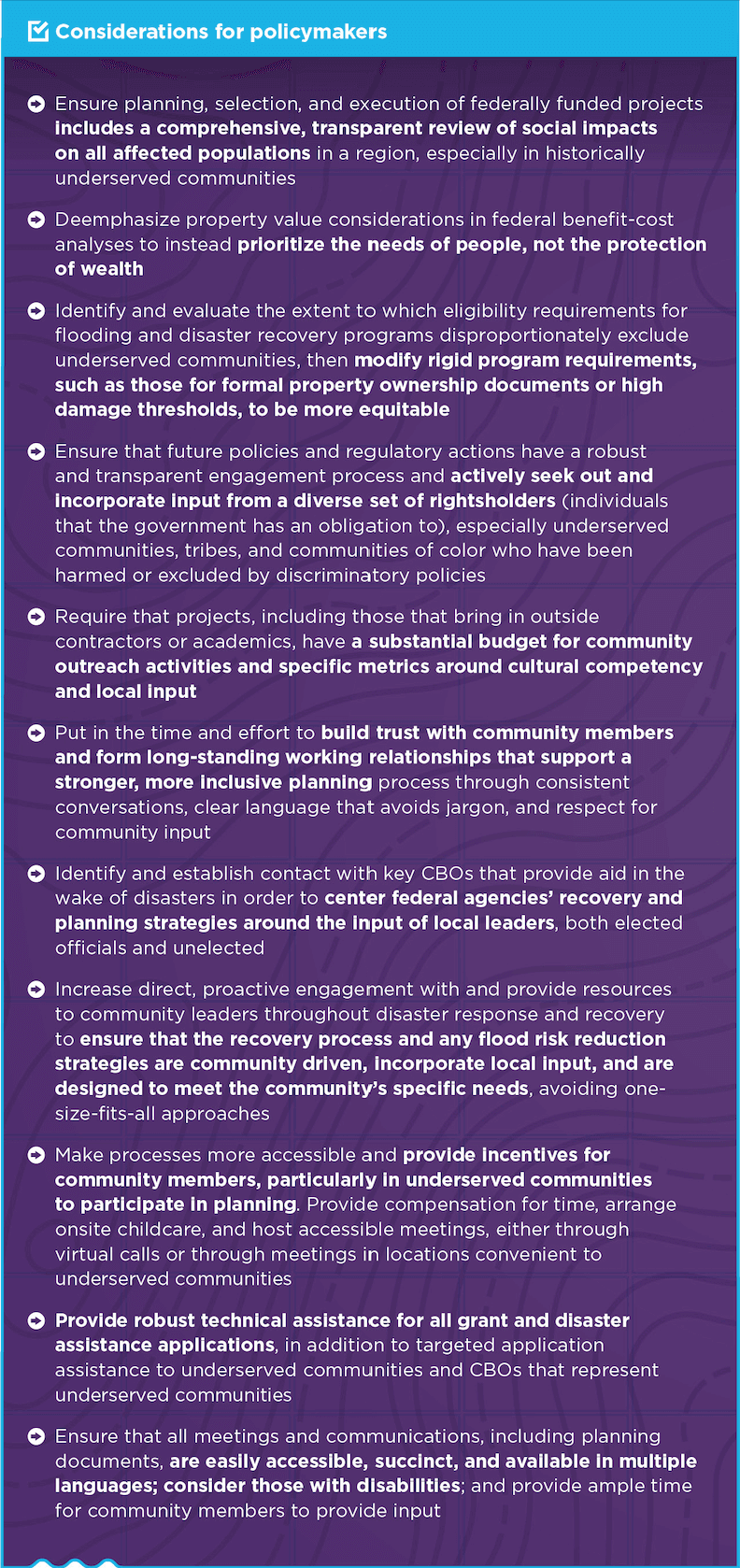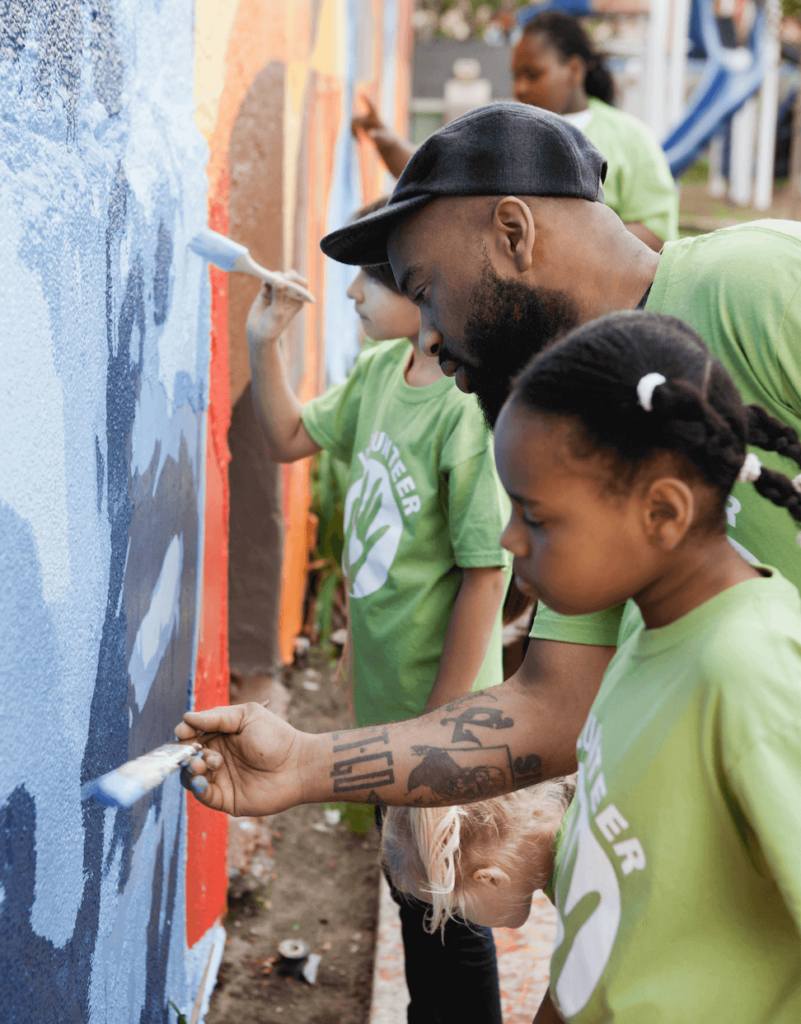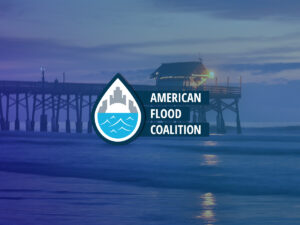April 29, 2021
—
American Flood Coalition and the Institute for Diversity and Inclusion in Emergency Management (I-DIEM) recently collaborated to publish the Conversations with Communities: Considerations for Equitable Flooding and Disaster Recovery Policy report. The report details the key themes raised by community-based organization (CBO) leaders during our recent roundtable series and offers policymakers considerations for developing fairer policy. In this post, we summarize the key takeaways.
Introducing the Roundtable Series
From a record-breaking hurricane season to the COVID-19 pandemic, 2020 saw unprecedented disasters that hit historically underserved communities the hardest. Given the unique challenges that financially-distressed communities face in accessing resources for recovery, disaster damage is often disproportionate and lasting. Policymakers must play a critical role in resolving these.
To bring together community voices around this issue, AFC and I-DIEM recently hosted a roundtable series with representatives from eight CBOs across six states (see below). Over three discussion-based sessions and a series of surveys, participants shared experiences and recommendations for equitable flood policy at the federal level.

Despite the varying backgrounds, flood experiences, and socioeconomic challenges of the communities that the CBOs represented, five core themes emerged from the series. Taken together, these themes can help federal policymakers advance fairness when addressing flooding, adaptation, and disaster recovery.
1. Project planning must put fairness first
Roundtable participants overwhelmingly agreed that their communities suffer from current federal policies on flood adaptation and recovery. Participants stressed that affluent neighborhoods and commercial hubs are more likely to receive federal flood mitigation funding than poorer or historically underserved areas.
This idea is reaffirmed by the United States Army Corps of Engineers’ benefit-cost analysis. To estimate avoided flood losses, the Corps factors property value into its benefit-cost analysis. By this measure, affluent urban areas with higher property values are deemed more worthy of protection and investment than poorer cities and rural areas.
When the federal government prioritizes property value over fairness, the needs of lower-income and underserved communities are often unmet or ignored. As one roundtable participant put it, “Environmental injustice continues since property values, and not the value of cultural heritage and human lives, [are] calculated [and] considered.” To implement equal and just flood mitigation solutions, federal policymakers must prioritize the needs of underserved communities.
2. Discriminatory policies that harm financially-distressed communities must be eliminated
Roundtable participants consistently shared how colonialism and ongoing discrimination influences policy and contributes to exclusionary practices, such as leaving oppressed groups out of decision-making processes. This can marginalize many groups, including tribal communities.
One participant noted that many tribal communities find it more challenging to access federal funding and disaster assistance because the federal government often fails to adopt policies that are compatible with the structure of tribal governments. For example, smaller tribes may lack the technical expertise and financial resources necessary for developing a hazard mitigation plan and, without a plan, are ineligible to receive grants from FEMA’s flood risk reduction and resilience programs. As of 2018, only 30% of tribal nations had a FEMA-approved disaster preparedness plan in place. To avoid further marginalization of underserved communities, the federal government must implement policy that considers the different community structures of underserved populations.
3. Long-term engagement between communities and federal officials is critical to build trust
Participants expressed that their interactions with federal officials were infrequent and inconsistent. For example, 83% of participants said they “disagree or strongly disagree that their community input is valued and taken into account in the policy decision-making process.” Participants also said that their communities often feel that feedback from academics or consultants with no connection to the community is valued more than input from CBOs and community groups.
Participants suggested that federal officials participate in consistent, ongoing discussions with community leaders rather than only engaging when disaster strikes. Officials at all levels of government must recognize that disaster recovery can take years, and building trust through long-term engagement can help understand and address community needs. Without a foundation of trust between communities and federal officials, recovery processes lose efficiency and increase inequalities.
4. Solutions must be community driven and support local leaders and nonprofits
Community organizations play a critical role in both disaster recovery and risk reduction planning. When asked about their organizations’ primary roles after a flood, participants cited crucial tasks, such as distributing resources, assessing damage, mobilizing volunteers, and coordinating with local, state, and federal agencies.
Community driven solutions are both necessary and effective. One participant highlighted a successful community-driven policy approach that gave local leaders significant responsibility during disasters. In that approach, officials collaborated with a local leader to communicate with community members in both English and Spanish. According to the participant, centering disaster preparedness around local voices reached more community members and kept residents informed.
Rather than following a one-size-fits-all solution, federal officials and policymakers should instead involve local leaders familiar with their communities’ needs to improve resilience and recovery assistance for those on the ground.
5. Policymakers must recognize that, for many, advocacy and participation are privileges
In the wake of a flood, many community members lack the capacity to advocate for themselves and their communities. Survivors are busy rebuilding their homes and businesses, while also coping with the emotional and physical toll of the disaster. As a result, survivors don’t always have the time to attend community recovery meetings or to advocate for disaster assistance. Similarly, for CBOs seeking to improve federal processes, undertaking a comprehensive review of proposed federal legislation and submitting comments by a deadline is virtually impossible while simultaneously supporting flood victims.
To increase community engagement, participants suggested that policymakers meet people at existing community events or hold informal meetings with food and childcare provided. Policymakers must recognize community members’ time constraints and create spaces that meet community members where they are.
Incorporating these themes into flood response
Although current federal flood policy strategies are well-intentioned, they often fail to fully consider the best interests of historically underserved communities. In addition to the five main themes, below you will find 11 policy considerations for federal officials that arose during the discussions. Policymakers can incorporate these themes and policy considerations into constituent outreach, collaboration with state and local officials, community engagement, drafting legislation, and oversight of regulatory policy and federal agencies. By considering these themes and regularly engaging with CBOs with local knowledge and expertise, federal officials can ensure a holistic approach to disaster policy.

For more information about the core themes and the experiences of the CBOs, view the full report.
__________________________________________________________________________
This article was co-authored by Malaika Hall, Program Analyst, and Victoria Sclafani, Senior Policy Associate.




